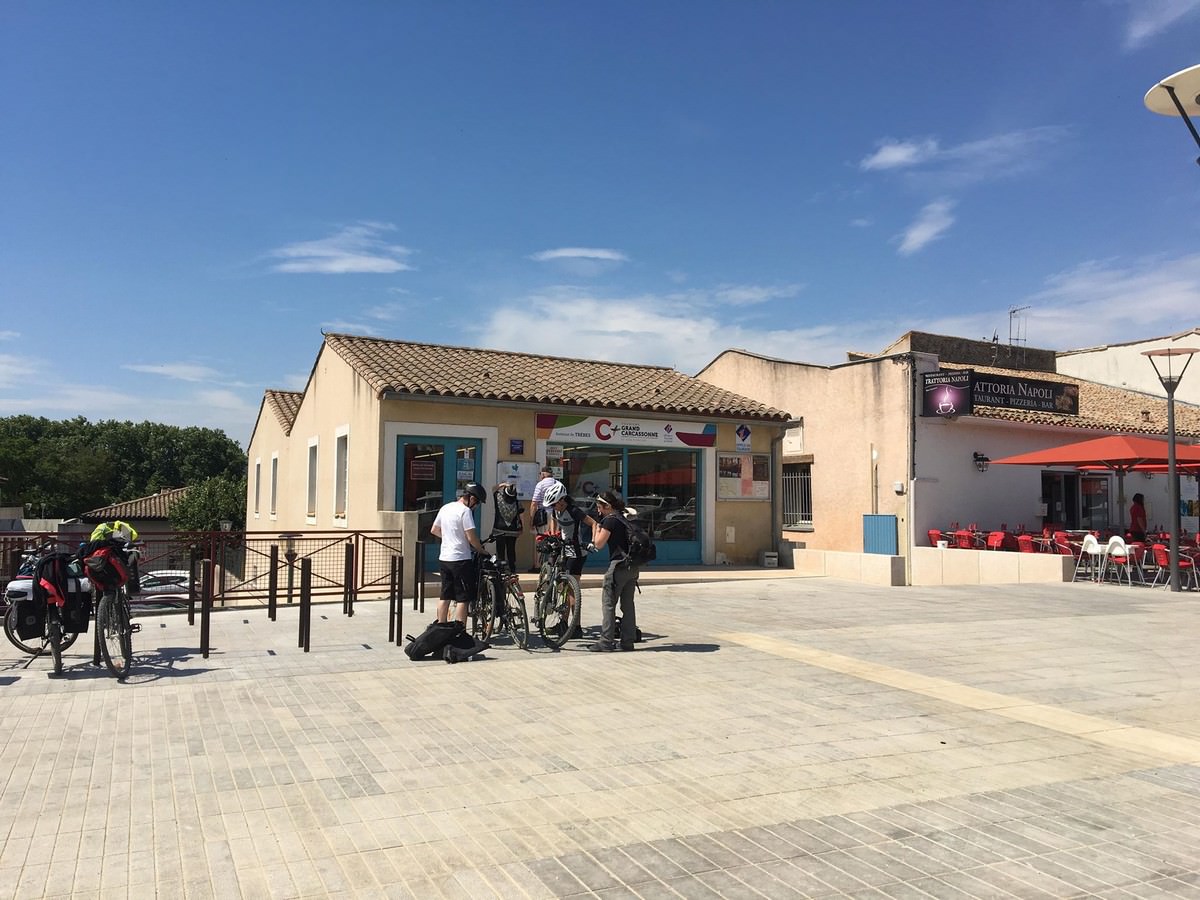
Carcassonne and the Canal du Midi
The town of Carcassonne is famous for its medieval city, listed as a UNESCO World Heritage Site, but it also played an important role in the history of the Canal du Midi.
The canal, initially known as the Canal Royal du Languedoc, wasn't supposed to pass through Carcassonne, but the plans were changed due to an unexpected turn of events. It is thanks to this decision that we can now admire the one-of-a-kind Fresquel navigable aqueduct and double lock on the Canal du Midi.
Why not take advantage of your time in the medieval city to explore the area around the Canal du Midi?
The must-sees of the Canal du Midi in Carcassonne
In Carcassonne there are several remarkable engineering structures that are part of the Canal du Midi, such as the Fresquel navigable aqueduct and double lock.
If you plan on visiting the Canal du Midi, Carcassonne and the medieval city are absolutely unmissable. Likewise, while you're in Carcassonne, make sure you explore the banks of the Canal du Midi and learn about the history of the canal.
Carcassonne port and the canal’s new route

Canal du Midi à Carcassonne ©Vincent Photographie, ADT Aude
The history of the Canal du Midi in Carcassonne
The canal initially planned 2 km away from Carcassonne
In 1670, as he was studying possibilities for the route of his future canal, Pierre-Paul Riquet, the canal's designer, suggested a route close to Bastide Saint-Louis, a district of Carcassonne. But there was a problem with that because overcoming Grasaille hill between Fresquel valley and the lower part of the town would be a costly task.
Riquet asked town councillors to provide financial compensation to be able to carry out the large-scale excavation work required. The consuls of Carcassonne refused to authorise these plans and so Riquet had to modify the route of his canal. It would therefore follow Fresquel river and would still be 2 km away, north of Carcassonne.
The Port de Foucaud (current North shopping area / Leclerc supermarket) was created for the transhipment of goods and passengers.
The Canal du Midi's new route
But the story doesn't end there! When the canal was officially opened for navigation, the handling costs for transporting goods by cart from the canal to the town were very high, and as a result, trade in Carcassonne ground to a halt for the entire 18th century. And the town councillor were certainly not happy about that.
In 1786, an agreement was signed with the Estates of Languedoc to divert the original route.
The new canal route ran close to Bastide Saint-Louis and a deep trench was dug out (20 metres!) to create a port on the north side. Between the medieval walls and the canal, is the current Square André Chénier, which is a spacious and relaxing area in stark contrast to the crowded medieval city.
Carcassonne's two locks
and Fresquel navigable aqueduct
Once the town had been crossed, the canal needed to get back to the initial route, which is why construction of the Fresquel navigable aqueduct began in 1802. This new engineering structure consisted of a cut stone bridge with three arches that was wide enough to withstand the canal and the road.
Downstream of the bridge, two locks were added to the construction. The first one was the Fresquel double lock with two basins, then a small intermediate basin, and a second single lock a few metres further downstream. Each lock has a lock keeper's house.
Carcassonne is the departure point for a wide range of boat trips
The first of Carcassonne's locks is on the north side of the town, opposite the train station. This is where boat trips depart from. Carcassonne is currently applying for the French 'Grand Site' status. There is a project to transform the fortified town, and create a sightseeing route between the medieval city and the train station, close to the canal port. These two points are 30 minutes away from one another on foot.
Exploring the area around the Canal du Midi
near Carcassonne
On foot or by bike
Take advantage of your time in Carcassonne to explore the Canal du Midi on foot or by bike. Here are some suggested routes.
By boat
Carcassonne is the departure point for boat trips to explore the town from the water.
Practical information
To make the most of Carcassonne, here is some practical information you might find useful:
Contact the Carcassonne Tourist Office
Contact
and information
OFFICE DE TOURISME DE TREBES 12 avenue Pierre Curie
11800 TREBES
Tél : +33 4 68 78 89 50






















